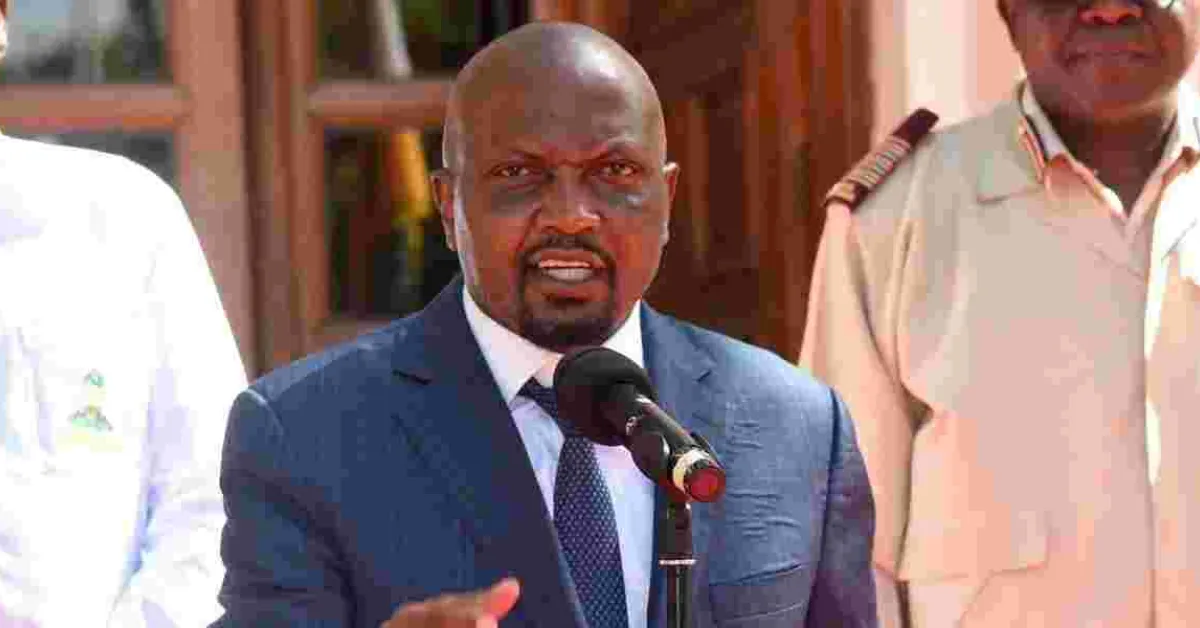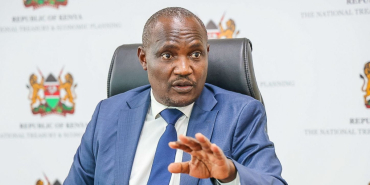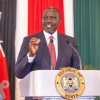All Digital Payment Systems Including M-Pesa to Become Virtual ETRs

President William Ruto's senior economic advisor Moses Kuria has provided clarification on his recent comments regarding the conversion of mobile payment systems into Electronic Tax Receipts (ETRs) by December.
Initially, his remarks at the Kenya Revenue Authority (KRA) Summit had been interpreted as specifically targeting M-Pesa, causing concern among stakeholders. However, Kuria has since emphasized that the directive applies to all payment service providers, including telcos and banks, framing it as an industry-wide initiative rather than one focused solely on M-Pesa. In a statement released on social media platform X, Kuria addresses the misinterpretation of his earlier comments, stating that the directive encompasses the entire spectrum of payment service providers.
This clarification aims to alleviate concerns that M-Pesa is being singled out for regulatory changes. The Kenyan government appears committed to modernizing the tax regime and enhancing tax compliance across all sectors of the economy. The government's stance on tax compliance extends beyond the ETR directive. Kuria announces that measures will be implemented to block the activation of imported mobile phones on any network if there is no record of applicable taxes being paid. This move is part of a comprehensive strategy to curb tax evasion and increase revenue collection in a bid to address the country's domestic debt burden through technological innovation and stricter enforcement.
The ETR directive primarily targets traders utilizing mobile money platforms for business transactions. Currently, a significant disparity exists between the number of companies using mobile pay bill services and those registered with physical ETRs. Out of over two million businesses employing mobile payment systems, only 200,000 have registered physical ETRs. The initial phase of implementation will focus on businesses with annual sales exceeding Sh5 million, with Kuria acknowledging potential unease but emphasizing the necessity of tax payment.
“We’ve agreed with the Commissioner-General that come Christmas 2024, all paybills will also be virtual ETRs for the purposes of KRA [revenue collection]. I know there is going to be some noise, but I also want you to tell me where we agree that someone will not pay taxes? Maybe I missed that point,” said Mr Kuria at the KRA tax summit Wednesday.
The Electronic Tax Register (ETR) is a digital system designed to maintain comprehensive records of financial transactions for value-added tax (VAT) monitoring and reporting. Despite its potential to enhance tax compliance, the adoption of physical ETR devices among VAT-registered businesses has remained notably low. The current fiscal landscape is particularly challenging for the Treasury following the Ruto administration's decision to withdraw proposed tax measures that would have generated approximately Sh346 billion in revenue this year. This policy reversal, prompted by public opposition, has created a significant gap in anticipated government income.
Consequently, the International Monetary Fund (IMF) has delayed its scheduled disbursement as negotiations regarding future revenue strategies have reached an impasse in the wake of the Finance Bill's withdrawal. In response to these challenges, the government is intensifying its tax compliance efforts through various means. The mandatory registration of VAT-registered taxpayers in the eTIMS system represents one such initiative. Additionally, authorities are adopting a more data-driven approach to tax enforcement, leveraging multiple information sources including banking records, import documentation, vehicle registrations, and utility consumption data to identify potential tax avoidance.
The widespread use of mobile financial services, particularly through Safaricom's M-Pesa platform, presents both opportunities and challenges for tax compliance efforts. As Kenya's dominant mobile operator, Safaricom has cultivated an extensive merchant network with over 633,000 active users on its Lipa na M-Pesa service and a comparable number utilizing Pochi la Biashara tills. This digital financial ecosystem generates valuable transaction data that could potentially aid in tax enforcement. To address the revenue shortfall, the government is implementing a comprehensive strategy that includes enhanced scrutiny of individual financial profiles, lifestyle audits, and the deployment of specialized personnel for thorough background checks and audits.














Add new comment